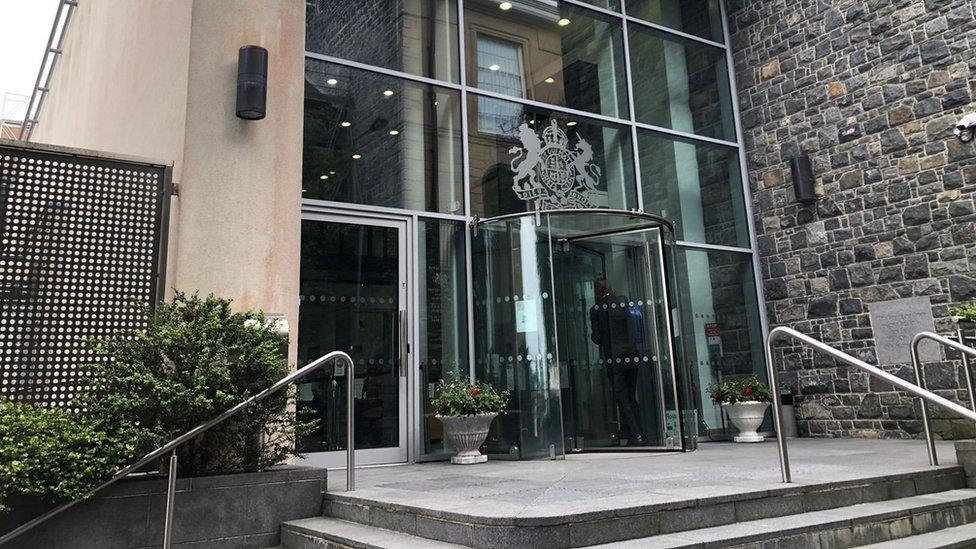Islanders' views as Guernsey government reaches mid-term
- Published
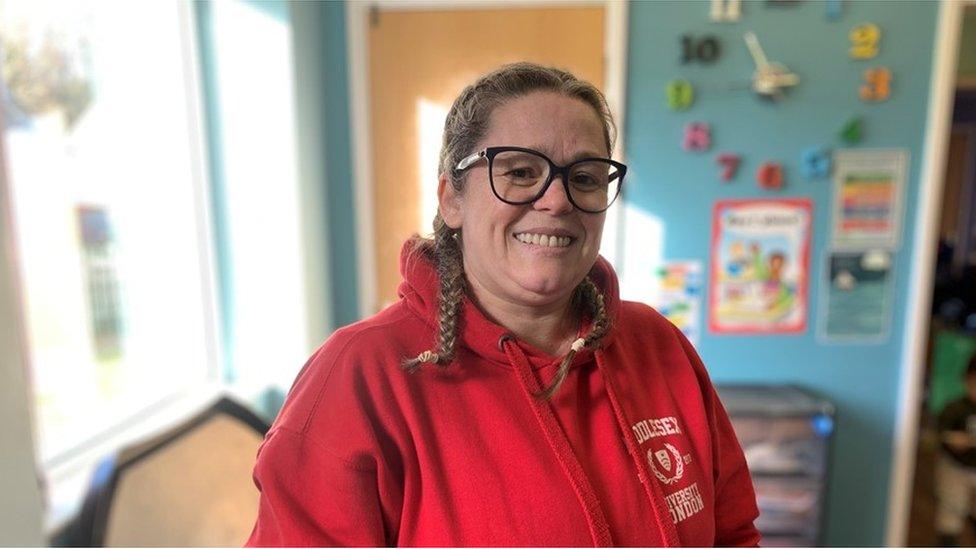
Ana Fernandes said more help with childcare was needed
It has been 855 days since 38 deputies were elected in Guernsey to govern island-wide for the first time. As we reach the halfway point of their term, the BBC spoke to islanders to find out what they thought.
Mother Ana Fernandes, who is a nurse at the Princess Elizabeth Hospital (PEH), said: "What would help me would be some more help with childcare, so the free 15 hours being introduced a year earlier would make a big difference."
At the moment the States offers 15 hours free pre-school education to children in their last year before primary school.
But with the cost of living crisis, Ms Fernandes said she has seen the cost of her food shop increasing "by about 50%, from what I used to pay five years ago".
Last year saw the highest rates of inflation in Guernsey in more than 30 years.
The Retail Price Index (RPI), which reflects the cost of living in Guernsey, found inflation rose 8% in the quarter for June to September.
In the 2023 budget some measures were included to tackle the cost of living, including a 7% increase in income tax allowances and the freezing of increases in property tax for owners of small houses.
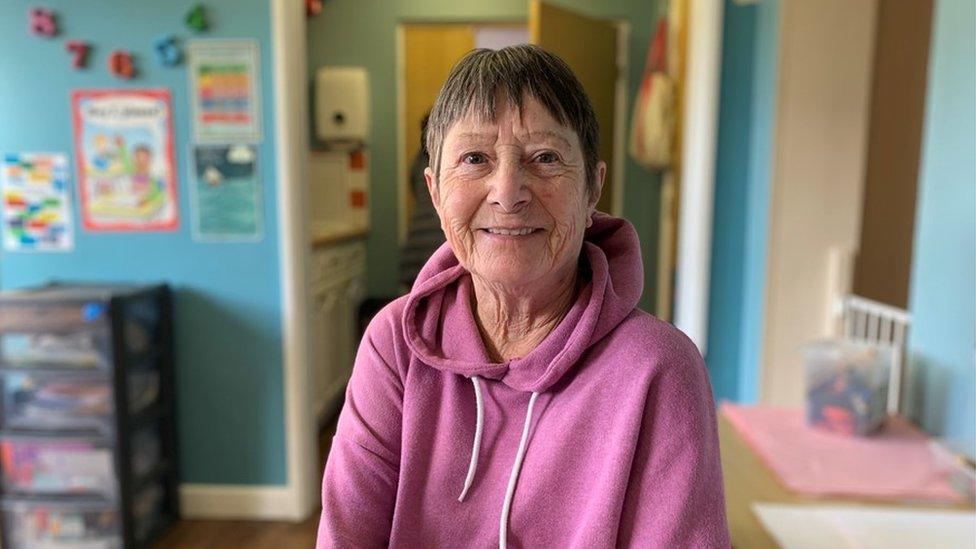
Sue Thompson said the cost of "rents are horrendous" in Guernsey
Grandmother Sue Thompson said she did not believe the States had done enough to help her with the cost of living crisis.
"My granddaughter rents and at the moment rents are horrendous, there's no way they're going to save… her and her partner both work and can't get enough to buy.
"At the moment, I don't think they have done a lot. The thing I've noticed the most is the cost of fuel it's horrendous, nothing is being done to help with the cost of petrol - all they need to do is freeze the tax on fuel."
President of Policy and Resources Deputy Peter Ferbrache said while Guernsey had been "more insulated" than the UK to the rising cost of living, the States had agreed "extraordinary" rises to benefits to increase income support and was arguing deputies back a "more progressive tax reform which would reduce the tax burden for most lower and middle income households".
One of the key priorities identified during this States term was tackling the housing crisis.
A lot of the discussion on this issue has centred on keyworker housing, specifically for staff at the PEH.
400Households on waiting list
£14.9mCost of four new sites purchased for housing since October 2020
49GHA properties built since October 2020
100Number of social housing tenants waiting to transfer to more suitable housing
The Policy and Resources Committee (P&R) wants to build new housing for keyworkers on a field nearby PEH, but a political petition was lodged in 2022 to stop any development of the site.
Those attempts, led by Deputy Steve Falla, were defeated in the end.
Plans for the 66 one-bedroom units have been submitted and have been subject to a record number of comments.
Later this year they will be discussed by politicians on the Development and Planning Authority.
Politicians have blamed the lack of sites for Guernsey Housing Association (GHA) as one of the reasons why new affordable housing hasn't been built in recent years, while others have blamed planning policies for a lack of units being given permission.
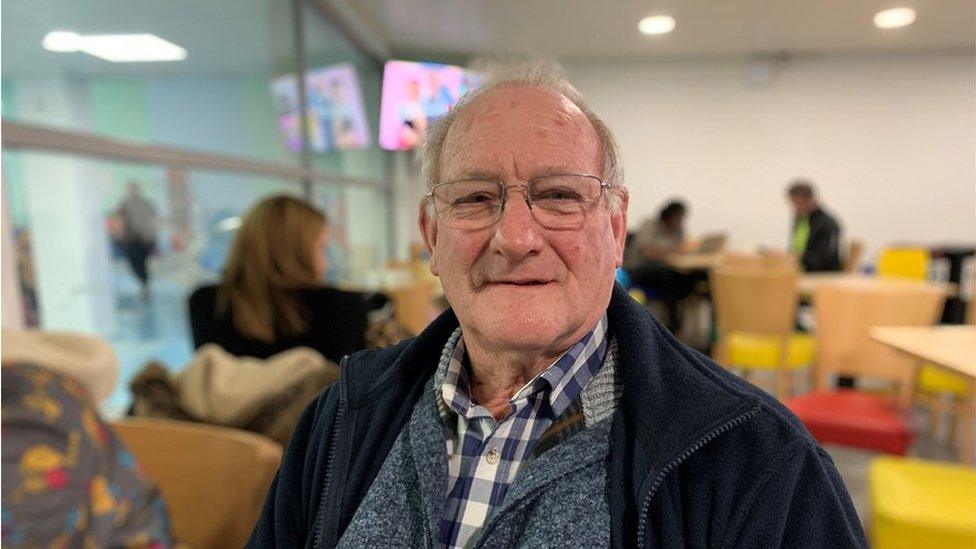
Peter Bourgaize said the field was the "perfect place to build homes"
Former fruit grower Peter Bourgaize said: "There's so much fuss about this field, and to me this is a perfect place to build homes for the nurses close to the hospital. I'd like to see them build there so we can have a decent well-staffed hospital."
Carol Abrahams, who works at the hospital, said: "It's incredibly hard if you are a low or middle earner trying to find housing here.
"I was there at that field this morning where they are talking about building those houses, and it needs a bit of levelling and then they should get on and build some housing there."
The States has bought four sites since it came into office in October 2020: Kenilworth Vinery £6.5m, Data Park £4.75m, Duval Vinery £1.95m and CI Tyres £1.7m.
President of Employment and Social Security Deputy Peter Roffey has led efforts alongside P&R to secure these new sites.
"It was a failure of government that we got to the situation where the GHA ran out of sites. The resources simply were not there to build on.
"It's come at a time where we have the worst housing crisis since the 1980s. So I am pleased with the Housing Action Group that we managed to put the turbocharger on buying these sites, but this delay shouldn't have happened."
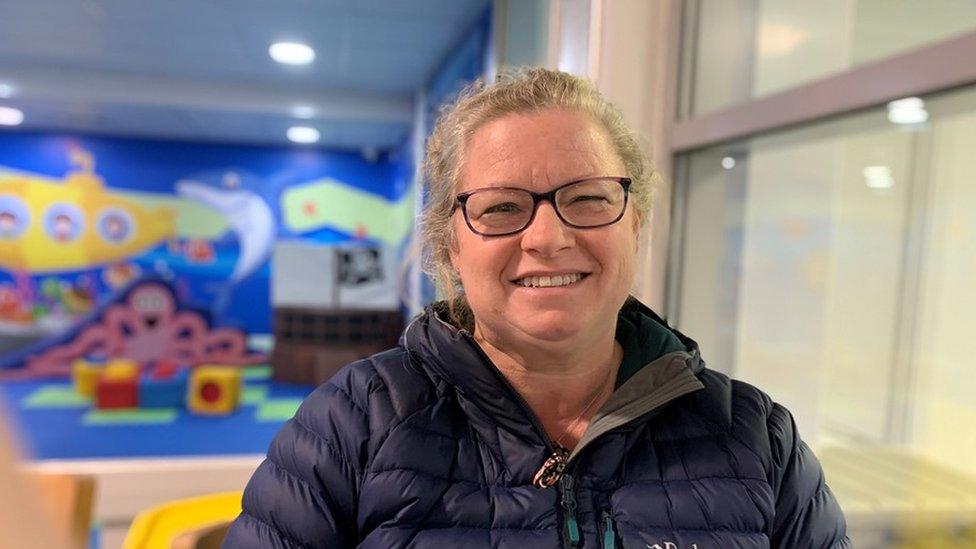
Carol Abrahams said "it's incredibly hard if you are a low or middle earner trying to find housing here"
He believes the biggest success of this States term has been "agreeing to bring in secondary pensions".
The new law will ensure employers make contributions to a secondary pension for staff.
He said: "It will make little impact in the short-medium term but it will make a massive difference in the medium-long term.
He added this was "a rare example of politicians looking beyond the political cycle".
Chief Minister Peter Ferbrache was pleased with the progress made by the government in securing new sites for housing.
He said his biggest disappointment in this term had been a lack of "action this day".
"In hindsight perhaps I should have said action this six months."

Follow BBC Guernsey on Twitter, external and Facebook, external. Send your story ideas to channel.islands@bbc.co.uk.
Related topics
- Published27 October 2022
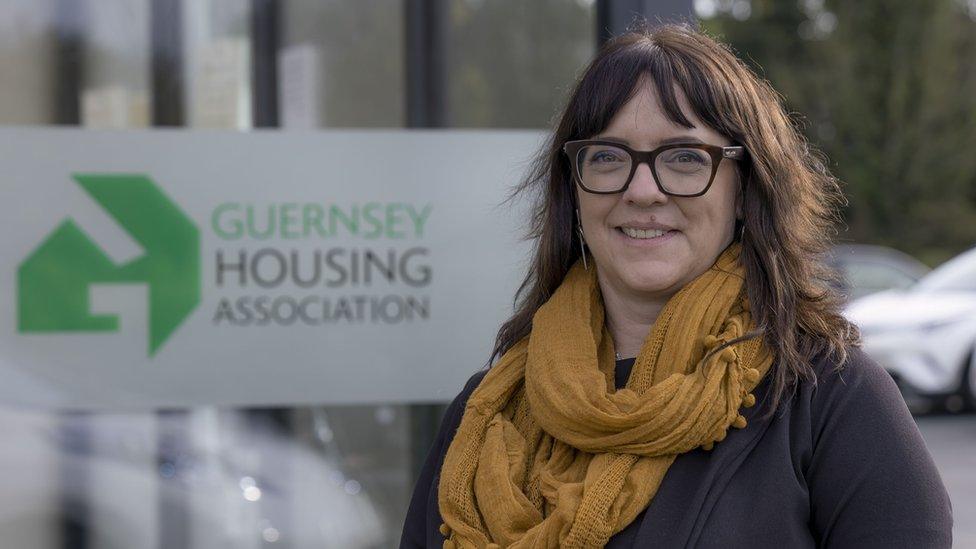
- Published25 October 2022
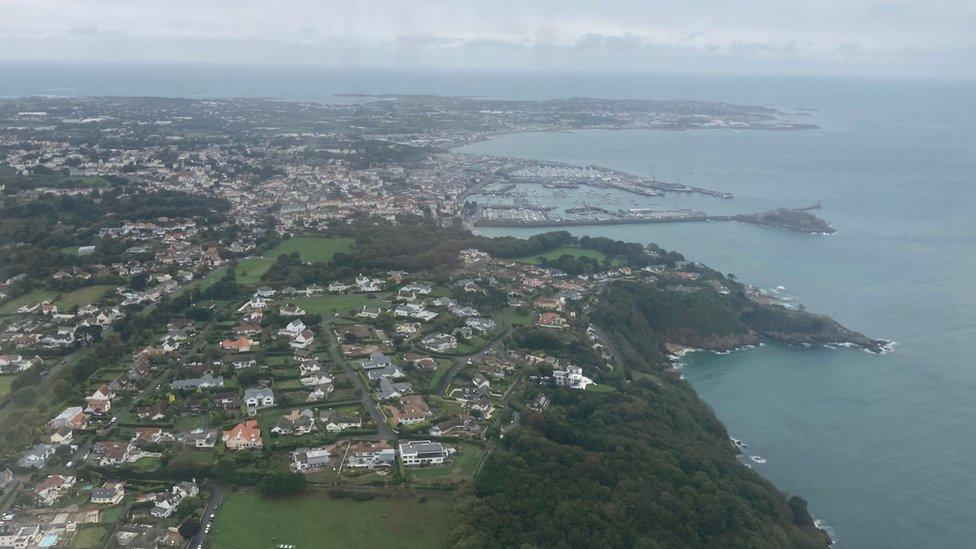
- Published15 July 2022
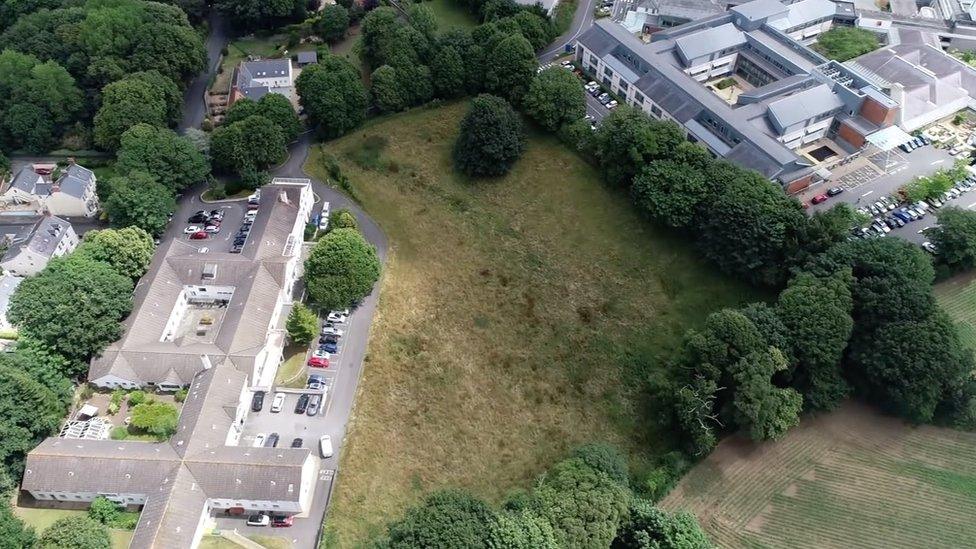
- Published26 May 2022
